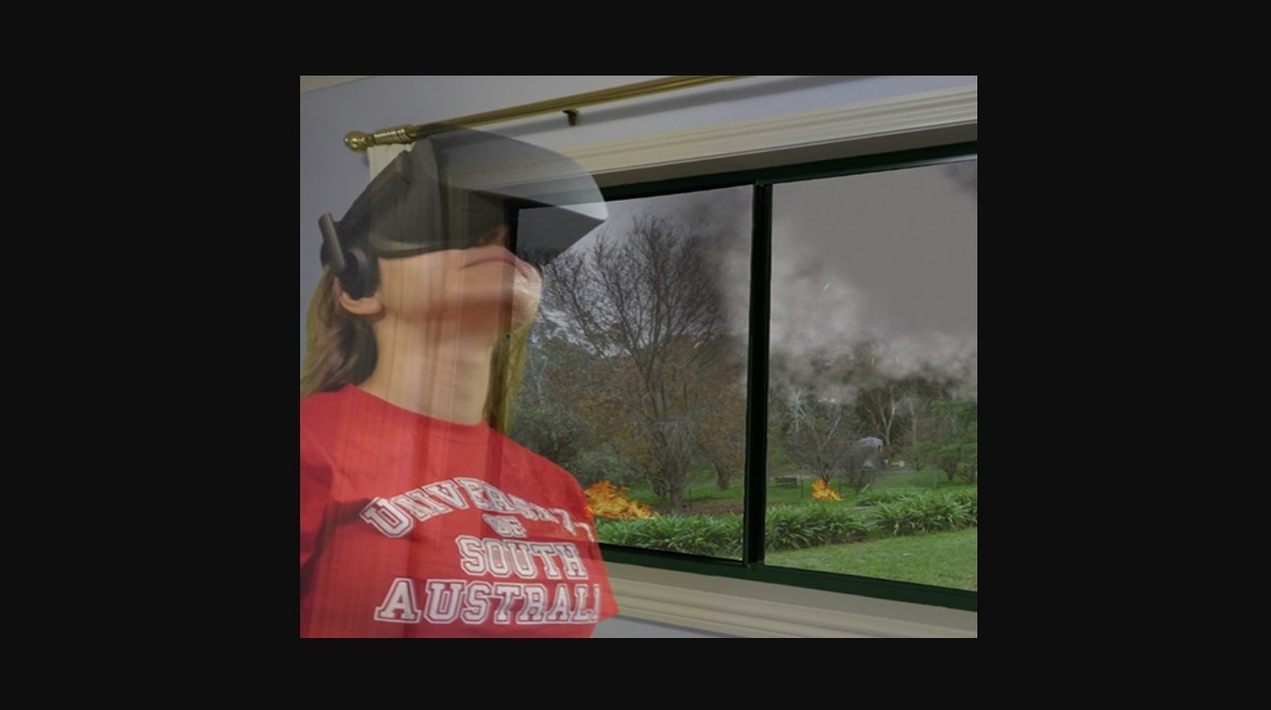
By replicating a computer-generated bushfire using virtual reality, University of South Australia researchers studied the responses of 400 people in an Australian-first experiment, with some interesting results.
Prior to the exercise, 55% said they would ‘wait and see’ on a severe fire day rather than committing to evacuate early or ‘stay and defend’, and more than two-thirds of people (68%) incorrectly believed the bathroom was the safest place to shelter.
In the wake of the VR exercise, which immersed respondents in every element of a fire crisis minus the heat, many of the non-committal group changed their minds, saying they were more likely to evacuate early after virtually experiencing the hellish conditions of a bushfire. When followed up three months later, 75% of participants remembered a salient lesson: shelter in a room with multiple exits as far away as possible from the fire front. The same percentage said the exercise had ‘greatly informed’ their understanding of a bushfire and the need for a survival plan.
UniSA Professor of Environmental Science, Delene Weber, who oversaw the study with PhD candidate Safa Molan, says the results show how valuable virtual reality can be as a training and educational tool for people living in high-risk fire zones. She noted that many of these people have never experienced a life-threatening bushfire before and have no understanding of how they would react or what decisions they would make under extreme pressure. However, a lack of preparation is not a new phenomenon. Records of the number of bushfire fatalities in the past 200 years show that almost a third of deaths have occurred because of late evacuation and poor decisions, she added.
The VR exercise with at-risk residents living in the Adelaide Hills, Gawler and Murraylands targeted the behavioural weaknesses and knowledge gaps that lead to injuries and fatalities. A total of 17 scenes of a bushfire were experienced through the 3D headset, including early warning signs, changeable weather conditions, the sights and sounds of the fire ripping through a property and threatening lives, and after the fire front had passed.
Two versions of the VR scenario were prepared: one for residents who planned to ‘stay and defend’ and a second one for residents who intended to ‘wait and see’. The latter group were virtually prevented from leaving their property by a tree blocking their access route, reinforcing the need for a contingency plan. Prior to the exercise, 25% of the ‘wait and see’ group had a written survival plan, compared to 52% of the ‘stay and defend’ – still alarmingly low, considering many were CFS members.
In the VR scenario, receiving the CFS ‘watch and act’ message acted as a first trigger for 37% of the ‘wait and see’ cohort to leave and another 20 per cent in that group elected to leave once their neighbours evacuated. Just 145 of that group decided they would stay and fight the fire after experiencing it virtually. The ‘stay and defend’ cohort were more consistent and less erratic in their responses, the study shows.
Many respondents realised they were not ready to deal with a fire, both practically and emotionally. What was clear from this virtual reality scenario is that we need fundamentally different approaches to educate people about bushfire plans, and VR is a very effective one. “The beauty of VR is that we can adapt and customise scenarios to target different groups of people, including women and those who are more vulnerable,” Prof Weber said.
















